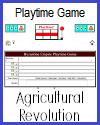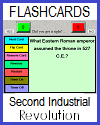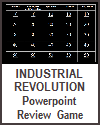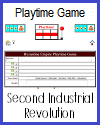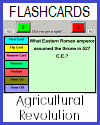Educational games can significantly enhance comprehension among high school World History students learning about the Industrial Revolution by transforming complex historical topics into engaging, interactive experiences. Games encourage active participation, which helps students retain information and develop a deeper understanding of the period's key concepts and events.
Simulations and role-playing games allow students to step into the shoes of factory owners, workers, inventors, or reformers. Through these roles, students explore the economic decisions, working conditions, and technological innovations that shaped the Industrial Revolution. For example, a classroom game might simulate managing a textile factory, prompting students to consider labor costs, resource management, and the impact of technological advancements. This hands-on experience helps students grasp abstract ideas like supply and demand, mechanization, and social class dynamics.
Strategy and trivia-based games can reinforce vocabulary and historical facts, while collaborative games promote discussion, problem-solving, and teamwork. Digital games with immersive visuals and storylines can further illustrate the drastic societal changes brought on by industrialization, such as urbanization, child labor, and environmental degradation.
When aligned with learning objectives, educational games make learning more memorable and enjoyable. They foster critical thinking and historical empathy, enabling students to better understand the causes, effects, and human experiences of the Industrial Revolution.
|

